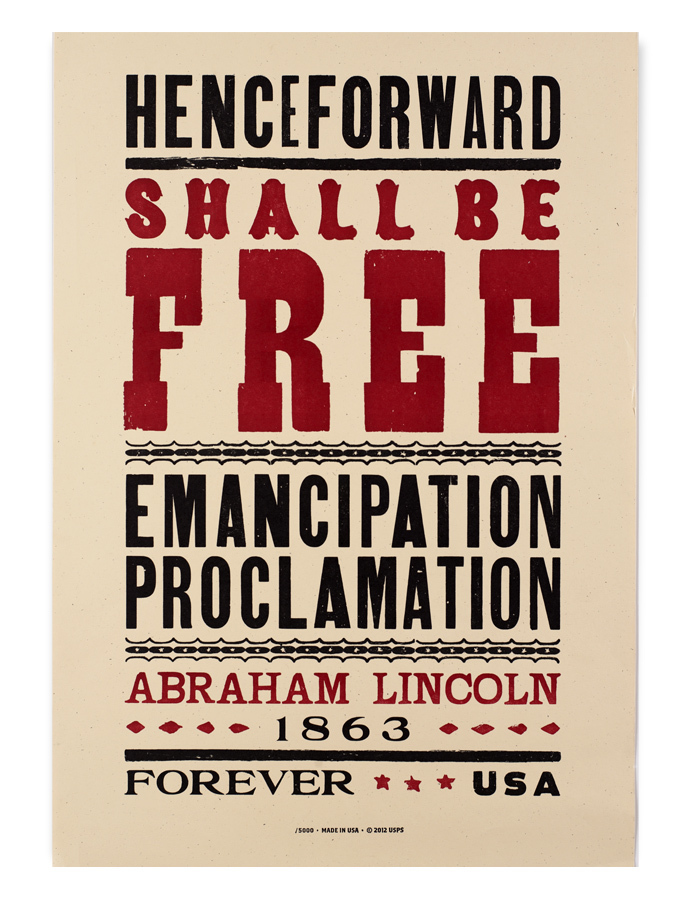The Emancipation Proclamation
Print this Article | Send to Colleague

Author: Akilah Armand-Hazlip, IDEA Committee Member
Slavery is defined as the condition of being enslaved, held, or owned as human chattel or property, bondage. A practice or institution that treats or recognizes some human beings as the legal property of others. The state of a person who is held in forced servitude.
Abraham Lincoln’s Emancipation Proclamation of January 1, 1863, declaring the slaves of the rebellious southern states “forever free,” is probably one the most important acts of his presidency or even his life. In 719 words, President Lincoln presented this proclamation that did not free slaves everywhere in the United States, but only the Confederate states during the Civil War. It also meant that freed slaves could be enlisted in the Union Army. It was actually the 13th Amendment, passed two years after the Emancipation Proclamation, that outlawed slavery forever.
President Lincoln understood that slavery contradicted the Constitution. Slavery dehumanized people and stripped them of the rights the forebears died to protect in the American Revolution. The Emancipation Proclamation was the necessary legislation that gave slaves their opportunity to free life in the United States. People say President Lincoln had several reasons for why the slaves were freed; some were political as well as ethical and spiritual. All arguments resulted in freedom to abused and misused people in America.
There could be many reasons President Lincoln ordered the Emancipation Proclamation. One of the main reasons of importance still relevant today should be to ensure all people are treated equally and are entitled to all human rights. Unfortunately, different forms of slavery still exist today in the U.S. and other countries worldwide. There are various anti-slavery groups and organizations that continue the fight to end slavery. No one should be treated as property or be forced to perform any type of services against their will.
While it is good to know there are people in the world that received help from the Emancipation Proclamation, the fight to end slavery and solidify equality and justice for all is forever ongoing. In 2010, former President Barack Obama proclaimed January as National Slavery and Human Trafficking Prevention Month, culminating in the annual celebration of National Freedom Day on February 1. He called upon the people of the United States to recognize the vital role we can play in ending modern slavery and to observe this month with appropriate programs and activities.
“Those who deny freedom to others deserve it not for themselves”
― Abraham Lincoln, Complete Works - Volume XII
Sources:
- Merriam Webster Dictionary, (2022). Retrieved from Slavery Definition & Meaning - Merriam-Webster
- Free The Slaves, (2007-2022). Retrieved from 719 Words That Changed History: The Emancipation Proclamation « Free the Slaves
- BHM – The Importance of the Emancipation Proclamation, (2009). Retrieved from BHM - the importance of the Emancipation Proclamation > Joint Base McGuire-Dix-Lakehurst > Display (jb.mil)
- Proclamation on National Slavery and Human Trafficking Prevention Month, 2021, (2020). Retrieved from Proclamation on National Slavery and Human Trafficking Prevention Month, 2021 – The White House (archives.gov)
Back to MEETING PROFESSIONALS INTERNATIONAL – CHICAGO AREA CHAPTER
